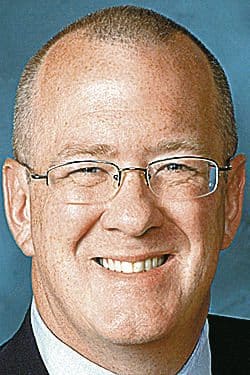The elemental essence of human interaction is trade. From our earliest days as a species, family groups organized themselves to conduct tasks, dividing them among members based on some comparative advantage. Faster, stronger people hunted. Others watched children, gathered food and prepared meals. Those roles changed over a lifetime, as individuals grew and aged or became hurt. The big key was that this arrangement was cooperative, not competitive.
Over centuries, these family groups grew into villages and towns. Trade was organized much the same way. The presence of more people in a small area allowed workers to focus on fewer and different skills, becoming better at just one task. The 18th century economist Adam Smith called this the Division of Labor. Again, this is inherently cooperative, not competitive.
This specialization of labor leads to other types of productivity enhancements as workers learn more about the work they do. This is true in everything we do as humans, as an example from sports illustrates. In the 1968 Olympics, the gold medal in the 100-meter breaststroke went to Don McKenzie from Indiana University. Last week at Indiana Swimming’s Senior State Meet, 20 young men beat that time. Trust me: I have reasons to know that this is not from better genes. This is the effect of the Division of Labor. The coaches spend more time learning training that is more specialized. Athletes receive more focused nutrition. And the swimmers wear highly technical suits that shed water and provide muscle compression.
In the case of swimming, the Division of Labor that enables detailed study of nutrition, exercise science and textile engineering all contributed to this huge human improvement in swimming. Moreover, the extra income and wealth created by centuries of growth meant more kids could swim competitively, instead of having to gather berries or hunt for their tribe.
Today, we trade with people we never meet. Even simple items like a piece of fruit or an office chair involve the skills of many people who are simply trying to make a living. This process is inherently cooperative, involving significant trust from field or mine, to factory and store. The opposite of war is not peace; it is trade. When you hear a politician describe trade with China as some vast competition between two large powers, you can be certain one of two things. They either are stupid or think you are.
Tariffs are taxes on trade. For much of the world’s history, tariffs were popular because there was no other easy way to collect taxes. As technology permitted governments to collect taxes, tariffs began to disappear. They became less popular as more nations came to appreciate the benefits of specialization of labor and more aware that tariffs are mostly used to prop up unproductive domestic businesses.
It is worth noting that maintaining unproductive businesses makes us much worse off over the long run. The process of unproductive firms closing, whether through trade with China or Kentucky, or through automation, can be difficult. It often displaces workers and disrupts families and communities. This may well call upon the resources of government to better train and educate workers and insulate families from these events. That we single out trade with a foreign nation, but not automation or trade with Kentucky, is a comical side note to our understanding of labor market disruption.
Today we have embarked on a trade war whose cost is simply the suspension of the benefits of trade. By raising taxes on products by 10% to 30%, the trade war is forcing firms to pay rising prices or move their suppliers to different, more expensive places. Alone, none of these things is sufficient to cause a recession. However, the uncertainty surrounding new tariffs and the shift of thousands of product lines from one nation to another, combined with wholly predictable retaliation by our trading partners, is enough to slow economic growth. Whether it is sufficient to cause a recession is a question time will shortly answer.
Michael J. Hicks is the director of the Center for Business and Economic Research and an associate professor of economics in the Miller College of Business at Ball State University. Send comments to [email protected].





